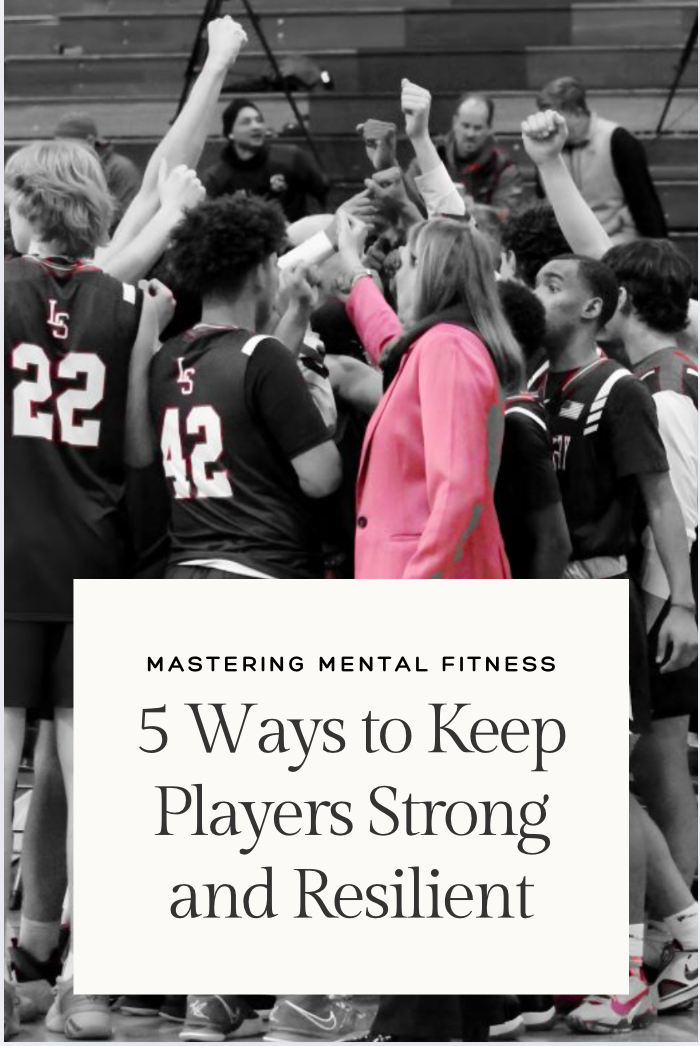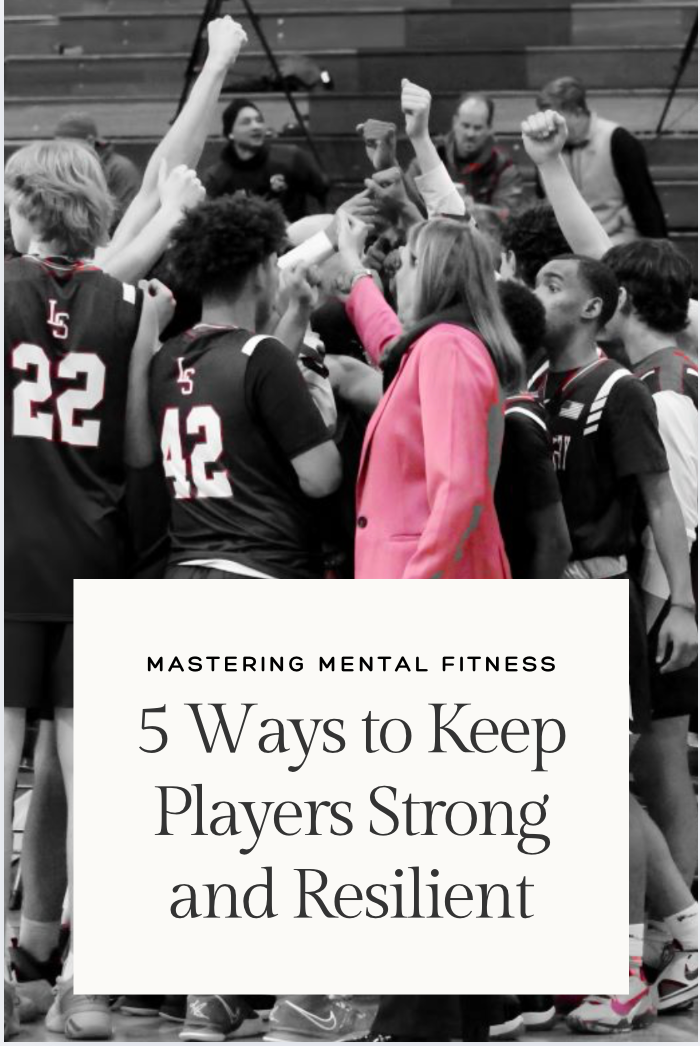
Mastering Mental Fitness: 5 Ways to Keep Players Strong and Resilient
Linda Martindale, Founder, Martindale Coaching
At every level of sports, from youth and high school to collegiate, mental fitness is as important as physical fitness. While athletes spend hours training their bodies, the mental aspect of the game often gets overlooked. Coaches and parents have a unique opportunity to help players develop mental resilience and confidence. These are the qualities that can make all the difference on and off the field.
As a boy’s high school coach, mental fitness coach for student-athletes, consultant to colleges around the country, and mother to four student athletes, I’ve realized that there are five key principles of mental conditioning. These are the important and attainable ways parents and coaches can support young athletes in reaching their full potential.

- Stay in the Moment
Athletes often get overwhelmed by thinking too far ahead or dwelling on past mistakes. Encourage your players to focus on the present moment — whether it’s one play, one drill, or one game at a time. This can be worked on by teaching them mindfulness techniques, like taking deep breaths or focusing on specific, immediate goals. Don’t underestimate the power of great breathing – it really works to stay in the zone. By staying present, athletes can reduce anxiety and perform at their best. Parents should be asking their kids about what happened in practice instead of focusing on the next competition or what happened in the last game. Lastly, focus on today and setting small, winnable goals for practice is the fastest way to a “winning” mindset.
- Stop Being Judge Judy
Self-criticism can be a major obstacle to mental fitness. Athletes often struggle with being overly harsh on themselves, leading to anxiety and decreased confidence. Teaching players to be kinder to themselves by treating mistakes as opportunities for growth rather than personal failures is a game changer (no pun or shameless plug for my podcast here). For parents, try focusing on effort and development instead of winning and losing. People ask me if this creates a “softer” athlete and surprisingly, I have seen the opposite result. Players that practice positive self-talk and mantras tend to be more well-balanced and happy which leads to higher performance.
- Don’t Compare Yourself (unless it’s driving you to be better!)
Comparison is a common trap for athletes, especially in team settings where they might feel pressure to measure up to teammates or opponents. Encourage your players to focus on their OWN growth and improvement, rather than comparing themselves to others. One of my favorite quotes is “Comparison is the thief of joy” by Teddy Roosevelt and I couldn’t agree more. Players that play with joy are almost always at the top of their game and the most mentally fit.
Parents should remind their kids that constant comparison hinders growth. This means that parents shouldn’t do it either. Telling your kids that they are better than one of their teammates almost always backfires. I’ve seen in so many times and it very rarely works as a motivator. Each athlete brings different skills and experiences to the gym or field so avoiding the evil trap of comparison is very important.
- Control the Controllables
In sports, as in most things in life, there will always be things that are out of our control — referees' calls, weather conditions, or an opponent's strategy or game play. Teaching athletes to focus on what they CAN control is huge. Things like their attitude, effort, and work ethic are the difference makers and the best players know how to focus on the things that can actually be changed.
Parents should reinforce this idea by discussing examples from daily life where focusing on the controllables led to better outcomes. Encouraging your child to practice letting go of things they can’t control, like the actions of others or unforeseen setbacks is a life-changing skill and with practice can enhance their experiences across all things.
- Don’t Dwell on Mistakes
Mistakes are a huge part of sports (as well as life). As a society, we love sports because “anything can happen.” The imperfection of sports is what makes them exciting. Dwelling on mistakes or setbacks can hinder an athlete’s performance and ultimately their confidence. Encouraging players to adopt a "next-play" mentality, where they quickly learn from mistakes and move on without letting it affect their mindset can help give the athletes a “Challenge is an Opportunity” mindset. When we face hard things, we tend to make mistakes – if we know these mistakes are helping us get better, then they seem less daunting and awful.
Labeling the mistake, correcting it and moving forward quickly is the fastest way to make a positive play. Parents should talk about mistakes as learning opportunities. For example, if your child is upset about an error they made during a game, ask them, "What can you do differently next time?" instead of simply focusing on what went wrong.
Mental fitness is not a one-time lesson but something that requires continuous practice just like weightlifting or performance training. By emphasizing these five principles — staying in the moment, not judging yourself, avoiding comparisons, controlling the controllables, and moving on from mistakes — coaches and parents can help athletes build resilience, confidence, and a healthier mindset. Supporting mental fitness not only helps athletes perform better but also makes them happier and more balanced individuals, both on and off the field.



0 comments